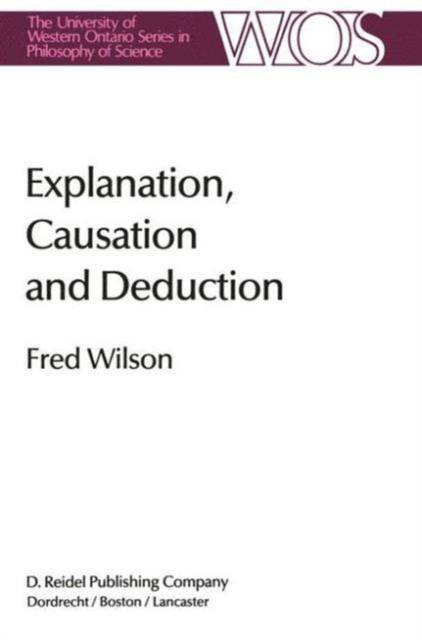
- Afhalen na 1 uur in een winkel met voorraad
- Gratis thuislevering in België vanaf € 30
- Ruim aanbod met 7 miljoen producten
- Afhalen na 1 uur in een winkel met voorraad
- Gratis thuislevering in België vanaf € 30
- Ruim aanbod met 7 miljoen producten
Zoeken
Omschrijving
The purpose of this essay is to defend the deductive-nomological model of explanation against a number of criticisms that have been made of it. It has traditionally been thought that scientific explanations were causal and that scientific explanations involved deduction from laws. In recent years, however, this three-fold identity has been challenged: there are, it is argued, causal explanations that are not scientific, scientific explanations that are not deductive, deductions from laws that are neither causal explanations nor scientific explanations, and causal explanations that involve no deductions from laws. The aim of the present essay is to defend the traditional identities, and to show that the more recent attempts at invalidating them fail in their object. More specifically, this essay argues that a Humean version of the deductive-nomological model of explanation can be defended as (1) the correct account of scientific explanation of individual facts and processes, and as (2) the correct account of causal explanations of individual facts and processes. The deductive-nomological model holds that to explain an event E, say that a is G, one must find some initial conditions C, say that a is F, and a law or theory T such that T and C jointly entail E, and both are essential to the deduction.
Specificaties
Betrokkenen
- Auteur(s):
- Uitgeverij:
Inhoud
- Aantal bladzijden:
- 400
- Taal:
- Engels
- Reeks:
- Reeksnummer:
- nr. 26
Eigenschappen
- Productcode (EAN):
- 9789027718563
- Verschijningsdatum:
- 30/06/1985
- Uitvoering:
- Hardcover
- Formaat:
- Genaaid
- Gewicht:
- 779 g

Alleen bij Standaard Boekhandel
+ 201 punten op je klantenkaart van Standaard Boekhandel
Beoordelingen
We publiceren alleen reviews die voldoen aan de voorwaarden voor reviews. Bekijk onze voorwaarden voor reviews.











